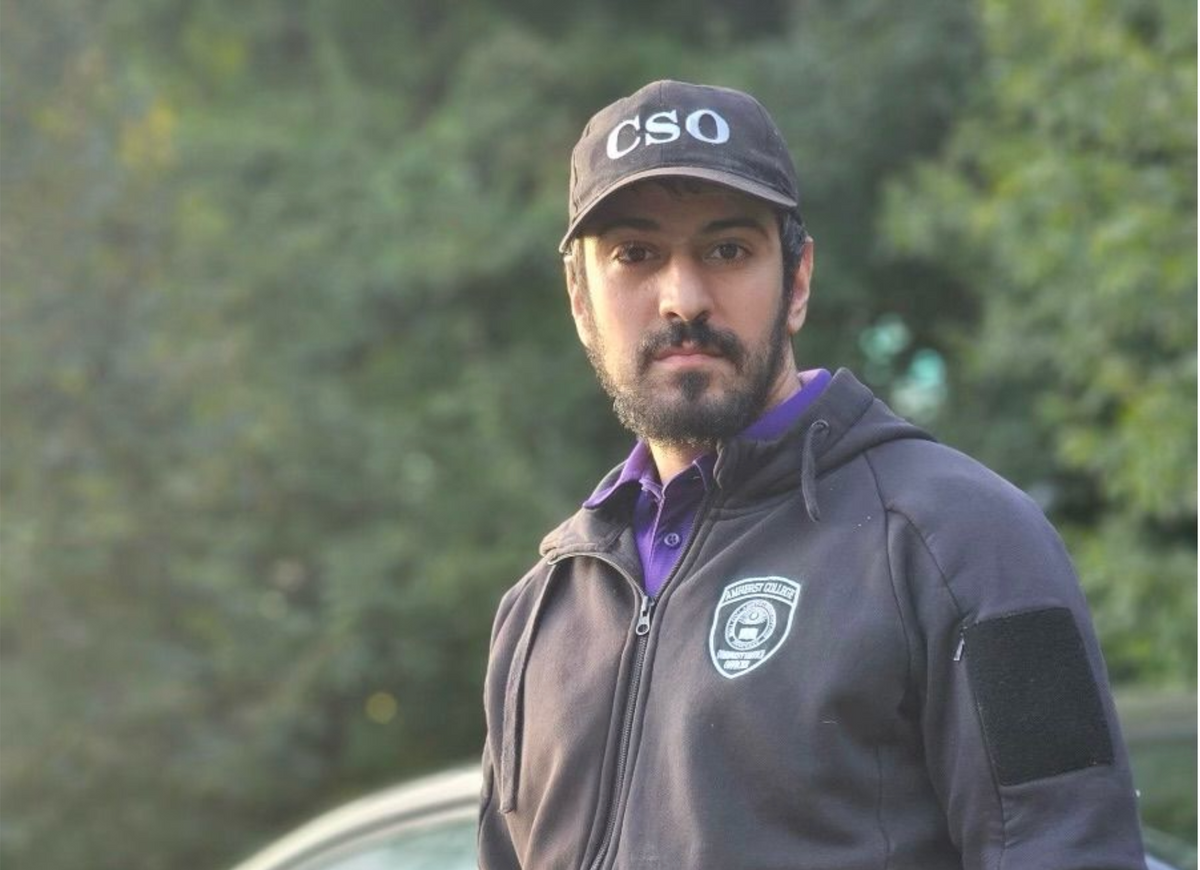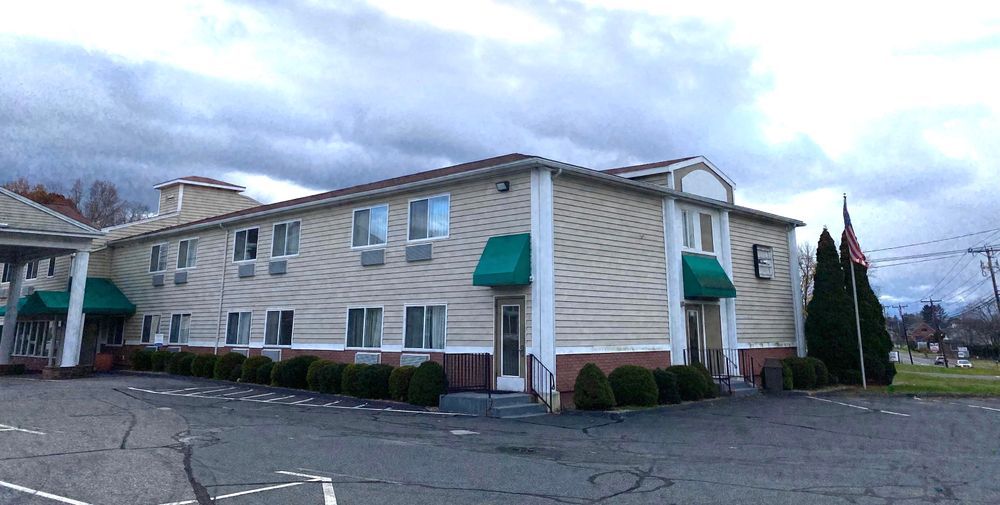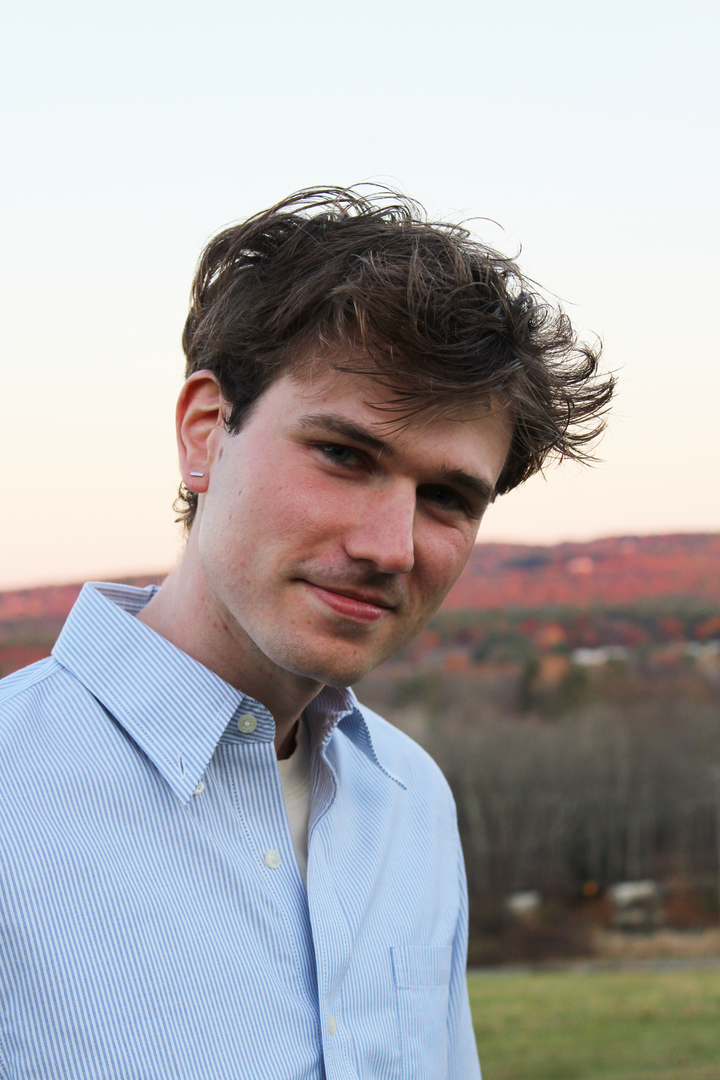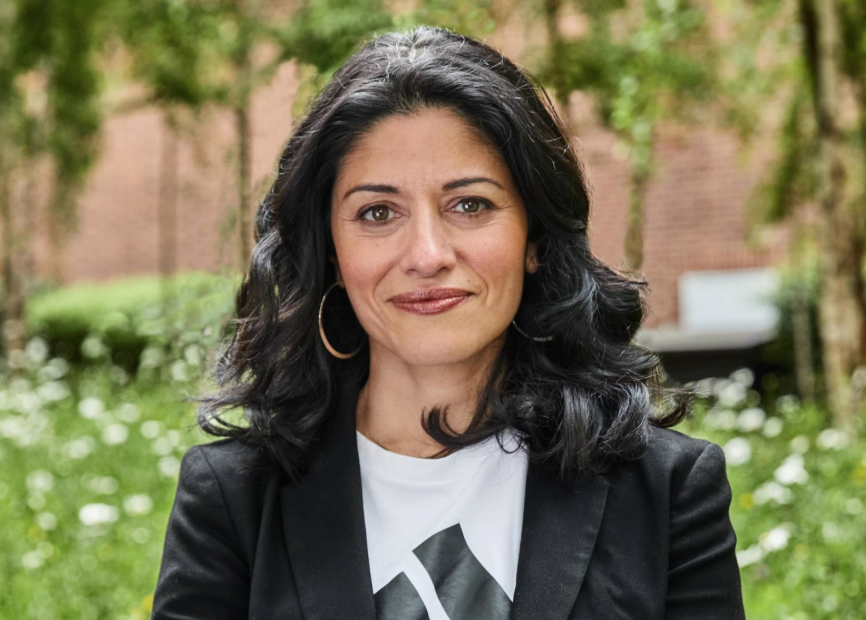Staff Spotlight: Merouane Daffar
Senior Managing Editor Stacey Zhang ’26 interviews Merouane Daffar, a community service officer in the Amherst College Police Department. Daffar discusses his role at Amherst, his fluency in three distinct languages, and his home in Algeria.

Stacey Zhang: I’m really glad you chose to do the interview here by the Yushien Garden. Any reasons why?
Merouane Daffar: It’s just really beautiful here. It makes me feel like I’m not here even though I’m here, like I’m somewhere in Japan, where I can see … history [on the wall]. I feel like I can leave the place without leaving the place.
SZ: I should really come here more often. So, as an introduction, what is your role at Amherst, and what does a typical workday look like for you?
MD: I’m a community service officer with the Amherst College Police … so I work mostly, if not entirely, with the community. For my typical day, I do foot patrol on campus, check on the community, I do parking tickets. [We both laugh.] By night, we do building security and check the buildings when we close them on time. We do some dispatch as well. Mostly, we [interact] with the Amherst community, and we try to make Amherst a better place. And that’s what I enjoy the most.
SZ: You had a different position during Covid times, right?
MD: Yeah. For Covid, Amherst had a hotel [for sick] students, [it was] the Rodeway Inn on Route 9. I used to be the inn keeper … It was very funny because [the college] would bring me guests, and they would come really sad. And so I made it a mission to [figure out] how I can make [them] happy in the next 10 days … So by 6 p.m. every evening, I [would] walk in the hallways and knock on their doors and say: ‘Out! Out! There’s a soccer game happening in the parking lot.’ And we would just play soccer every day … and there were people who have never played soccer [who found] themselves running by the ball … there was a student who taught me lacrosse there in the parking lot too, and … spikeball. The Rodeway Inn was a different world. We made for them a snack room also … one time I caught a student carrying like 15 bags of chips going back to his room, it was busy! I even kept in touch with some of the students who have graduated from quarantine.

SZ: That sounds much better than some of my quarantine experience. I remember first meeting you in your [community service] van … I’m curious, what kind of interactions do you have with students in the car?
MD: When driving students, I like to put some music on in the car. I always try to put something on to engage a conversation with the person who’s with me, so I can get to know them, and I can later know how I can help them if they ever need anything. I’m always here to help … Funny story … one time, there was a drunk student in my car that actually threw up in my van. I [told] their friend, ‘Hey, you gotta clean that up.’ Which they did, and they apologized, but now remembering it, it was a funny experience.
SZ: What’s your favorite type of music?
MD: I miss Algeria. I’m from Algeria, so sometimes I put on Algerian music, an old, nostalgic music called Raï. Sometimes I put on English music, but I really don’t know what the lyrics are about. English is not my first language, it sounds super fast to me, and I really need subtitles somewhere. But I like them.
SZ: You just talked about being from Algeria. I’m curious: what was it like growing up in Algeria? And how did you end up here at Amherst?
MD: I’m from Aïn Roua, a village in Sétif, Algeria. I grew up in a nice, educated family. My little brother is a doctor, and both of my sisters are dentists, and I really love the community in Algeria. Growing up, after school, I always liked to play soccer in the street. I remember when the car [ran over] the soccer ball, we [had] to go beg our parents to buy another soccer ball. The community in Algeria is different from here. There, wherever you go, you see people smiling [at] you. The hospitality there is amazing. Like this is Ramadan now, and no one would be hungry there. There are special places like restaurants, [which] open their place during the month for free, for whoever is traveling. There was this one unique tree in my village that grows horizontal[ly]. Whenever I have exams in high school, I would take a nap under the tree for an hour, and then after I [woke] up, I start[ed] studying. I used to take naps there. The weather’s really nice there too.
And how did I end up here? My wife’s from Amherst. I met my wife online [on] a language exchange website. I always loved learning languages, that’s why I speak [English]. And I was looking to practice my English, and my wife, she actually graduated from Mount Holyoke, and she was studying French. I remember it was Ramadan, I was about to eat my suhoor, and received a message around 3 a.m. She said, ‘Hey, can you help me with my French?’ And I said ‘Absolutely’ … and nine months after we knew each other, she visited me that summer … she came to visit me a fourth time, and we said, ‘okay, it’s my time to come here.’ So I came here, and we got married.
SZ: Wow, that’s really sweet. Going back to Algeria, what do you miss about home? Do you go back often?
MD: I really miss home. I’m excited to go this summer … because home is home. Home is where my family is. I really miss my friends. I miss walking in the streets … I miss seeing my friends. We used to go play some PlayStation, some FIFA … We didn’t watch time there, time passed so fast. There were also soccer tournaments from time to time between neighborhoods … you see people going to cheer for their neighborhood. It gets really fun. Most of the money that we raised from these tournaments go to charity too. There were a lot of exciting events there even if it’s a small area. I miss when I wake up by fajr time, which is before dawn, and we hear the call of the prayers. We leave the house, and you don’t hear anything, it’s so silent, and it’s dark you don’t see, but you can hear the footsteps going to the mosque. The air is really fresh and nice. I miss that. I miss the food too, couscous, and chorba. You should come!
SZ: I’ll bring the crew one of these summers for sure … You’ve also been involved in publishing, and I’ve heard you are getting five-star reviews. Can you talk about how that’s going?
MD: I feel like … there’s no better way to express than writing. Because when you are writing, you are describing who you are, what you are … [My company] is called Marotrips Publishing. I noticed that [I] really like to make catchy stuff, like workbooks, gift ideas, childrens’ books. Amazon does a lot of the work for me … My bestseller is the cat notebook, somehow! It was something I spent ten minutes making. I have no idea how it became [a] bestseller, but I think it looks cute. It’s called Marotrips Publishing, so Merouane on a trip, on adventure.
SZ: I saw this in another interview, but if you can pick a subject or class to take here, what would it be?
MD: It would probably be history. I think history builds the present and builds the future. Someone with no history is walking to the future with no knowledge where his footsteps are going…
SZ: For the record, I did not plant this [as a history major]. What kind of history would you be interested in?
MD: I’m not really interested in knowing dates and events, I’m more interested in knowing how we end[ed] up here? … How were the people who lived before us? As human beings, we have a period of time, and then we leave this life. I want to know what the people who lived before me thought...I want to know not just my history, but also world history. I feel like all humans are the same. The thing is, since we are all the same, why are there so many differences? Why [do] we think some are better than others? [A lot of it is] power and money. I think if people understand that everything is going to perish, why are we looking for something that is not gonna last forever? … Through history, you get some answers to that.
SZ: What else do you like to do in your free time, outside of Amherst?
MD: I love anime. I watch a lot of older anime. Anime in the past weren’t just a bunch of kids going to fight monsters. The older ones were more about teaching you how to be a good person … I like Detective Conan, Captain Tsubasa, Gundam Wing, Millennium Puzzle, Dragon Ball … I can start naming a lot. And anime makes your mind imagine. What can’t happen in life, in anime it’s possible.
SZ: What’s a fun fact about you that most people don’t know?
MD: I don’t know, I’m kind of an open book … But I speak fluently three languages, French and English, I speak [Modern Standard Arabic], and the [Algeria] dialect. I understand all other dialects of Arabic, but [others] don’t understand Algerian Arabic.
SZ: Lastly, since you interact with students so much, what’s some advice you want to share with them?
MD: I personally think the college provides a lot of academic and other resources, and my advice is for students to use the resources here as much as they can. So when they leave here, they have what they need to build whoever they are.





Comments ()